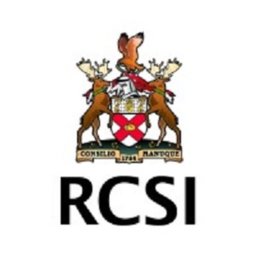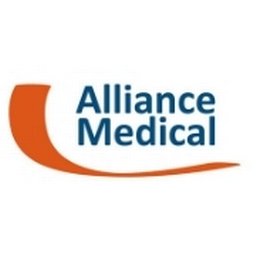Department: Research Ireland, FutureNeuro Centre, RCSI
Tenure: Fixed term, 2-year contract from September 2025, part time or fulltime considered (0.4 to 1 FTE)
Location: 123 St Stephen’s Green, Dublin 2 (Hybrid working available)
Reporting to: Professor Gianpiero Cavalleri
Start Date: September to October 2025
Remuneration: Aligned with HSE 3875 Medical Scientist pay scale
Closing Date: 27th August 2025
RCSI is a community of academic, research, clinical and professional staff working collaboratively to lead the world to better health. Here, you will thrive in an innovative and inclusive atmosphere and your personal development and wellbeing will be supported. We invite you to join us to help deliver on our exciting mission “To educate, nurture and discover for the benefit of human health”. We seek candidates whose experience to date has prepared them to contribute to our commitment to the “Race Equality Action Plan 2025-2029” at RCSI. Our students come from all walks of life and so do we. We hire great people from a wide variety of backgrounds. This makes our university stronger and ensures we hire the best talent.
Innovating for a Healthier Future 2023-2027 is RCSI’s new five-year strategic plan. Through it, RCSI will enhance human health by meeting the health workforce needs of society, creating the insights and inventions that drive health improvements, and working in partnership with patients and the public in support of better health and well-being for all. The strategy unites the RCSI community in supporting the UN Sustainable Development Goals – with a particular focus on Goal 3, which targets good health and well-being.
For each of the last six years, RCSI has been positioned in the Top 300 of universities worldwide in the Times Higher World University Rankings. We are proud that RCSI ranks fifth in the world for “Good Health and Well-being” in the Times Higher Education #SDG #SDG Impact Rankings 2024. This reflects our commitment to supporting people of all ages to live healthy lives and our work to promote the concepts of well-being and positive health. In 2024, RCSI was delighted to be named one of the Sunday Times Best Places to Work in Ireland.
At RCSI, our core values of Respect, Collaboration, Scholarship, and Innovation are at the heart of everything we do. We are committed to creating an inclusive and supportive environment where every colleague is valued and empowered to thrive. Our dedication to these values ensures that we foster a culture of mutual respect, open collaboration, continuous learning, and innovative thinking. Join us at RCSI, where your contributions will be recognised, and you will be part of a dynamic team making a real impact on global health.
About FutureNeuro
FutureNeuro is the Research Ireland Centre for Translational Brain Science. Our Centre uniquely focuses on making discoveries and developing technologies that can solve the urgent, unmet needs of people living with neurological, psychiatric and neurodevelopmental disorders and the health professionals who care for them, linked to Ireland’s clinical care pathways. Hosted by RCSI, our 34 research teams are based in eight leading Irish universities and are linked into the main treatment hospitals for neurology and psychiatry. We aim to change the patient journey through our research. This includes developing rapid and accurate tools for diagnosis, the development of therapies to correct damaged brain networks, technologies to enable self-monitoring of health and well-being, and linking this to Ireland’s national imaging, diagnostics and eHealth infrastructure based in our specialist care hospitals. We are multi-disciplinary, inter- institutional and work with industry, patient organisations and the health service to transform the lives of patients in Ireland and worldwide. http://www.futureneurocentre.ie/
The Role
The appointed individual will play a key role in supporting research into the genetic basis of human disease by contributing to variant curation, clinical data integration, and the implementation of robust data management practices. The role involves working with structured research and clinical datasets, supporting the linkage of phenotypic and genomic information, and contributing to high-quality variant interpretation to help identify genetic cause of disease, in accordance with recognised guidelines. The successful candidate will work as part of an interdisciplinary team of scientists, clinicians, and research staff in a collaborative and translational research environment. This position is ideally suited to individuals with a background in genetics, genomics, or molecular biology, with previous experience within a clinical genetics laboratory/ multidisciplinary team (MDT), who are interested in applying their skills to real-world research with clinical relevance.
Principal Duties and Responsibilities
Variant Curation
- Analyse and interpret the output of next generation sequencing pipelines in relation to cases with primarily (but not exclusively) suspected neurogenetic conditions
- Review and classify genetic variants in line with ACMG/AMP, ClinGen and AGCS guidelines
- Curate variants using tools and databases such as ClinVar, gnomAD, OMIM, Varsome, and HGMD among others
- Maintain variant curation records and assist in managing internal databases
- Participate in regular review meetings (bioinformatics and clinical MDT meetings) to support the interpretation of findings
Data Management
- Design and manage projects using current best practice for secure collection of structured data
- Coordinate with clinical and research teams to ensure data accuracy, completeness and consistency
- Export and prepare datasets for integration with genomic analysis outputs
- Apply standard ontologies to harmonise data and improve downstream interpretation
- Support longitudinal data management and cross-study harmonisation
- Perform regular audits on data captured
- Write standard operating procedures for activities associated with the role
Research Support and Collaboration
- Contribute to grant applications, ethics documentation, progress reports, and scientific publications
- Work closely with investigators, coordinators and analysts to prioritise and process cases
- Support training and onboarding of students and other trainee scientists in variant interpretation and data collection best practice
- Attend and contribute to multidisciplinary team meetings and collaborative research efforts
- Keep abreast of the literature and best practice in the field, specifically via implementing guideline updates as they arise
Qualifications (Essential):
- An undergraduate degree or higher in Human Genetics, Biomedical Science, Genomics, Molecular Biology, Bioinformatics, or related field
Qualifications (Desirable):
- A master's degree or higher in Human Genetics, Genomics, Molecular Biology, Precision Medicine, Bioinformatics, or related field
Mandatory Experience
- A strong and practical understanding of sequencing data formats (e.g. VCF) and genome browsers (e.g. IGV)
- Basic scripting or data handling (e.g. R, Python, SQL)
- A strong understanding of, and practical experience working with variant classification frameworks and guidelines including ACMG/AMP, ClinGen and AGCS.
- Working knowledge of major genomic databases (e.g. ClinVar, gnomAD, OMIM, HGMD)
- Strong attention to detail and understanding of data quality and integrity
- Proven ability to communicate effectively and collaborate in multi-disciplinary teams
- Experience using electronic data capture systems for data collection and management
Desirable Experience
- Prior experience in rare disease or neurogenetic research
- 1+ years' experience in genetic variant interpretation using exome/genome sequencing data, in a diagnostic and/or research environment.
- Prior experience deploying DNA sequencing pipelines (e.g. GATK)
- Familiarity with clinical phenotype standardisation and interoperability frameworks, such as Human Phenotype Ontology (HPO), Phenopackets, and FHIR
- Experience working with or contributing to disease-specific registries or structured clinical databases
- Experience using REDCap or similar platforms for data collection
- Experience working under data protection and research ethics frameworks (e.g. GDPR, Health Research Regulations)
- Experience within a clinical genetics laboratory/multidisciplinary team
Key Competencies
- Effective collaboration with internal and external stakeholders
- Strong communication and interpersonal skills
- Team-oriented with a collaborative mindset
- High attention to detail and data accuracy
- Skilled in report and documentation preparation
- Flexible, proactive, and goal-driven
- Strong IT and data handling skills
- Ability to work independently and manage time effectively
- Committed to ongoing learning and development
- Organised and deadline-focused
- Professional and ethical in all work practices
- Supportive of mentoring and knowledge sharing
Applications
Please apply online at http://www.rcsi.ie/careers with your CV and Covering Letter no later than 11.30pm on Wednesday August 27th 2025.
Informal enquiries can be made to Prof Gianpiero Cavalleri ([email protected]).
Interviews
It is proposed that interviews will take place during the latter half of the week commencing Monday September 15th 2025.
Report job






